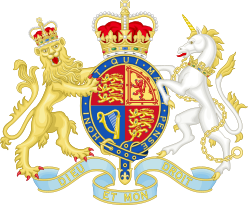This article needs additional citations for verification .(June 2009) |
 | |
| Department overview | |
|---|---|
| Formed | 1968 |
| Preceding agencies |
|
| Dissolved | 1988 |
| Superseding agencies | |
| Jurisdiction | United Kingdom |
| Headquarters | London |
The Department of Health and Social Security (commonly known as the DHSS) was a ministry of the British government in existence for twenty years from 1968 until 1988, and was headed by the Secretary of State for Social Services.